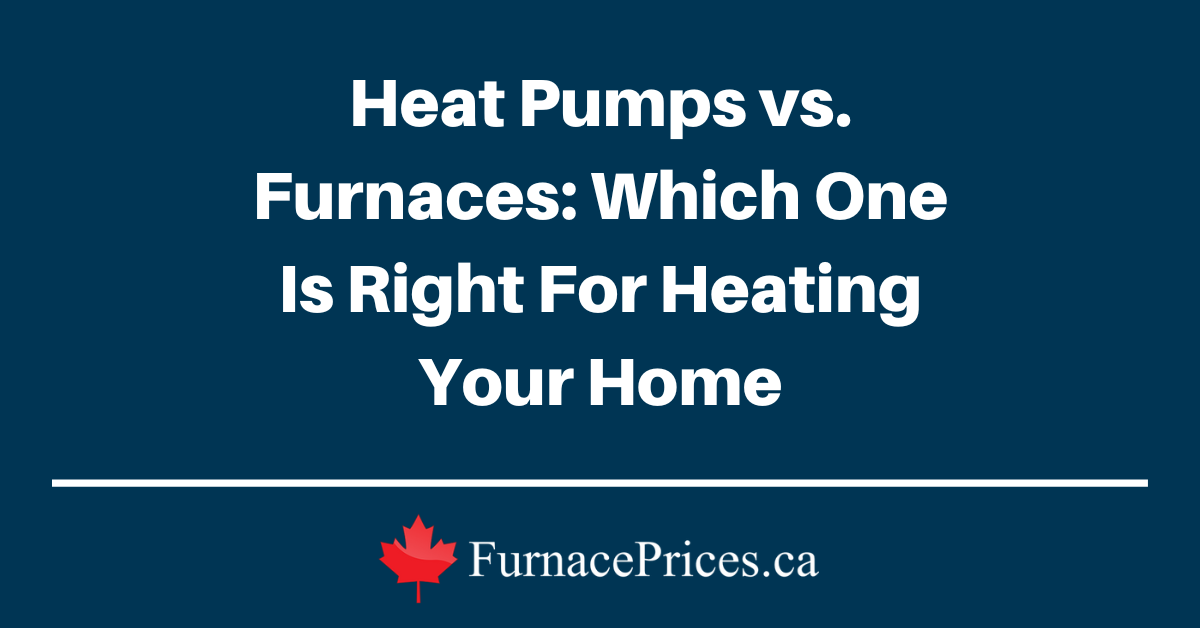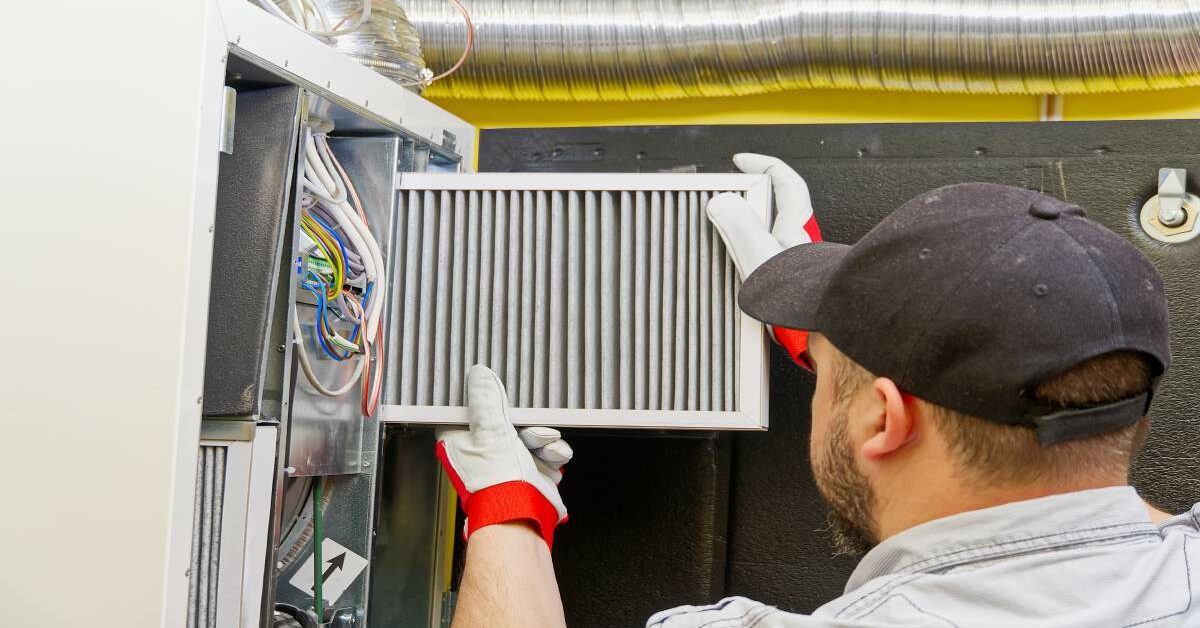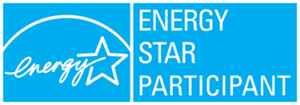What’s the best heating technology for your home in Canada? There’s a lot to consider in terms of installation and fuel costs, comfort, and reliability. You also have your choice of many options, both traditional and modern. This guide provides cost comparisons for different home heating system types to help you find the best heating system for your home in Canada.
Home Heating System Types
Finding the right heating system requires choosing the right type of system and ensuring it’s the proper size to meet your home’s heating requirements. First, you’ll have to take a look at which heating systems for homes are suitable for your property.
Central Heating Systems (Ducted System)
A central heating system relies on ductwork running throughout your home to distribute heated air. Many types of home heating systems fall under this category.
Furnaces
Furnaces are among the most widely used heating systems in Canada. They burn fuel to heat air that passes through a heat exchanger. The cost to run your furnace will depend largely on the type of fuel, and furnace prices vary depending on many factors.
Gas Furnace
A gas furnace is one of the most affordable home heating choices. They burn natural gas, which is very cost-effective. However, this is only a choice if the area you live in has access to a natural gas network.
Oil Furnace
An oil furnace relies on fuel oil, so you’ll need a storage tank and regular deliveries. Today, fuel oil prices have risen significantly, making this option less affordable in home heating system comparisons.
Electric Furnace
An electric furnace heats with electricity instead of combustion. It can be used to replace gas or oil furnaces for electric heat while making use of existing equipment and hookups. However, other electric home heating options can be more efficient.
Heat Pumps
Heat pumps are among the most efficient heating systems available today. They pump heat in during winter to heat your home, and pump heat out in summer to cool it. Because they use electricity to move heat instead of generating it, they use electricity very efficiently. Heat pumps can often be the cheapest way to heat a house.
Air Source Heat Pumps
Air source heat pumps draw heat from the air outside your home, transferring it to the air inside that is circulated through ducts. They still work even when it’s cold outside, although there is a limit at extreme freezing temperatures.
Ground Source Heat Pumps
A ground source heat pump uses the same technology but draws heat from the ground. Pipes are installed that circulate air, water, or another fluid underground. In winter, it is much warmer underground than above ground, so you can usually avoid the temperature limitations of air source heat pumps.
Ductless Mini-Split Heating System
Ductless mini split systems are an excellent heating system for homes without ductwork. Instead of one unit distributing air through ducts, several smaller units are installed around your home. Each can provide heat independently to give you room-by-room control.
Direct Heating System
A direct heating system heats the air around its components directly rather than distributing it through vents. The heat then circulates throughout the room or the entire home.
Electric Baseboard Heating
Electric baseboard heating relies on electric heating elements installed at the baseboard in rooms throughout your home. They are likely the cheapest way to heat a home in Canada in terms of installation, but they may be expensive to operate.
Boiler Systems
Boilers are another one of the common types of heating systems in Canada. They are a type of central heating system, but they don’t transfer heat through ducts. Instead, they heat water that flows through pipes, either to radiators in various areas throughout your home, or in piping running through the floors. They can use either combustion or electricity to generate heat.
Fireplaces & Woodstoves
Fireplaces and woodstoves let you burn firewood or pellets in a safe manner to heat your home. You’ll only have one heat source, so distribution can be a challenge. However, you’ll have reliable heat even when the power goes out.
How to Choose the Best Home Heating System
There’s no one-size-fits-all solution for heating systems. For homes in Canada, you’ll have to carefully compare the best heating technology based on your unique needs.
Climate & Where You Live
In Canada, climate plays a major role in determining the right heating system for you. Options like furnaces and boilers are powerful and versatile, standing up to the harshest winters. Heat pumps can become much less efficient at colder temperatures.
Home Layout & Size
Your home’s size is also a major factor in choosing heating system types. A small home can easily make do with a woodstove or a few ductless mini splits, as distribution isn’t an issue. Larger homes, by contrast, may call for a furnace or boiler to ensure more even temperatures throughout.
Fuel Availability & Cost
Some fuel types aren’t available everywhere. Natural gas is one example. While inexpensive, you must be near an existing gas network. Your area may also have limited access to firewood. Electricity is available essentially everywhere, but costs can vary significantly from one area to another.
Insulation Levels
When you’re considering different types of home heating systems, don’t overlook the importance of insulation. If you have inadequate insulation, you’re wasting money no matter what type of heating your home has. Improving insulation is one of the best money-saving tips.
Do You Have Ductwork?
If you have existing ductwork, a furnace or central heat pump is likely right for your home. Installing ductwork can be expensive or impossible for some dwellings, but making use of it if it is already there is the best strategy.
The Most Environmentally Friendly Solutions
Of course, your own cost savings and comfort aren’t the only factors to consider when choosing a heating system for your home. You should also take your environmental impact into account. However, doing an online search for “the best heating system for house in Canada in terms of sustainability” is unlikely to yield a clear answer.
The results might say that heat pumps are the most efficient way to heat a house in Canada today. That’s because they achieve roughly three times the efficiency of electric baseboard heating by moving heat instead of generating it.
However, keep in mind that electric heat isn’t necessarily cleaner than gas. Much of the electricity in Canada still comes from plants that burn fossil fuels, creating greenhouse gasses, and not all the energy is converted into electricity. But some provinces have mostly carbon-free electricity.
Consider Available Government Rebates
Both the federal and provincial governments provide a variety of rebates for installing efficient types of heating systems in residential homes. These measures are typically focused on heat pumps, which are considered to be the best option in heating system efficiency comparisons.
In terms of federal grants, you could be eligible for up to $5,000 toward the installation of a heat pump. Keep in mind that the amount you are eligible for depends on your current heating system and the type and size of the heat pump you’re installing.
Cost Comparison Between Different Types of Heating Systems
Finding the cheapest heating source Canada’s homeowners can choose can be difficult and will vary depending on your region and your unique needs. This table provides a heating system cost comparison to break down the general ranges you can expect from your installation and utility costs.
| Heating System | Installation Cost | Annual Utility Cost |
|---|---|---|
| Air Source Heat Pump | $7,000 – $16,000 | $1,870 |
| Ground Source Heat Pump | $30,000 | $1,180 |
| Mini-Split Heat Pump | $3,000 per room | $1,420 |
| Gas Furnace/Boiler | $3,000 - $13,500 | $2,300 |
| Oil Furnace/Boiler | $3,000 - $13,500 | $3,970 |
| Baseboard Electric | $725 | $3,500 |
Keep in mind that this is only a general home heating systems comparison. The only way to know for sure is to get quotes from professional installers. The climate in your region, the size of your home, and the specific features you’re looking for can all greatly influence the final cost.
What Maintenance Is Required for Each Type of Heating System?
Maintenance is also one of the most important areas to look at when it comes to saving money on your home heating. No matter what type of system you choose, you will have some maintenance requirements to keep it running reliably and efficiently.
Electric baseboard heating does not require much routine maintenance aside from simple cleaning. Boilers are among the next easiest to maintain, as they don’t even require the air filter changes that other systems do. However, a potential water leak could require extensive repairs.
Furnaces are typically easy to maintain as well. Like any system that relies on ductwork, they need filter changes. You’ll also need to do occasional inspections of the combustion and safety elements, and occasionally replace a component that wears out.
Heat pumps need air filter changes to keep them performing efficiently. You’ll also need to inspect the refrigerant system to make sure no leaks have developed.
In most cases, an annual tune-up is recommended for home heating systems. Even if nothing is wrong, a tune-up can ensure performance, efficiency, and safety to give you peace of mind all winter long.
Don’t Rush When Choosing Your Next Heating System
On average, home heating accounts for 29% of your utility bills. That’s why it’s important to carefully consider your options for home heating systems. This guide provides a heating systems cost comparison to help you understand your options, but make sure to do further research and obtain multiple quotes before moving forward with your decision.
Get Quotes
How soon are you looking to buy?*











